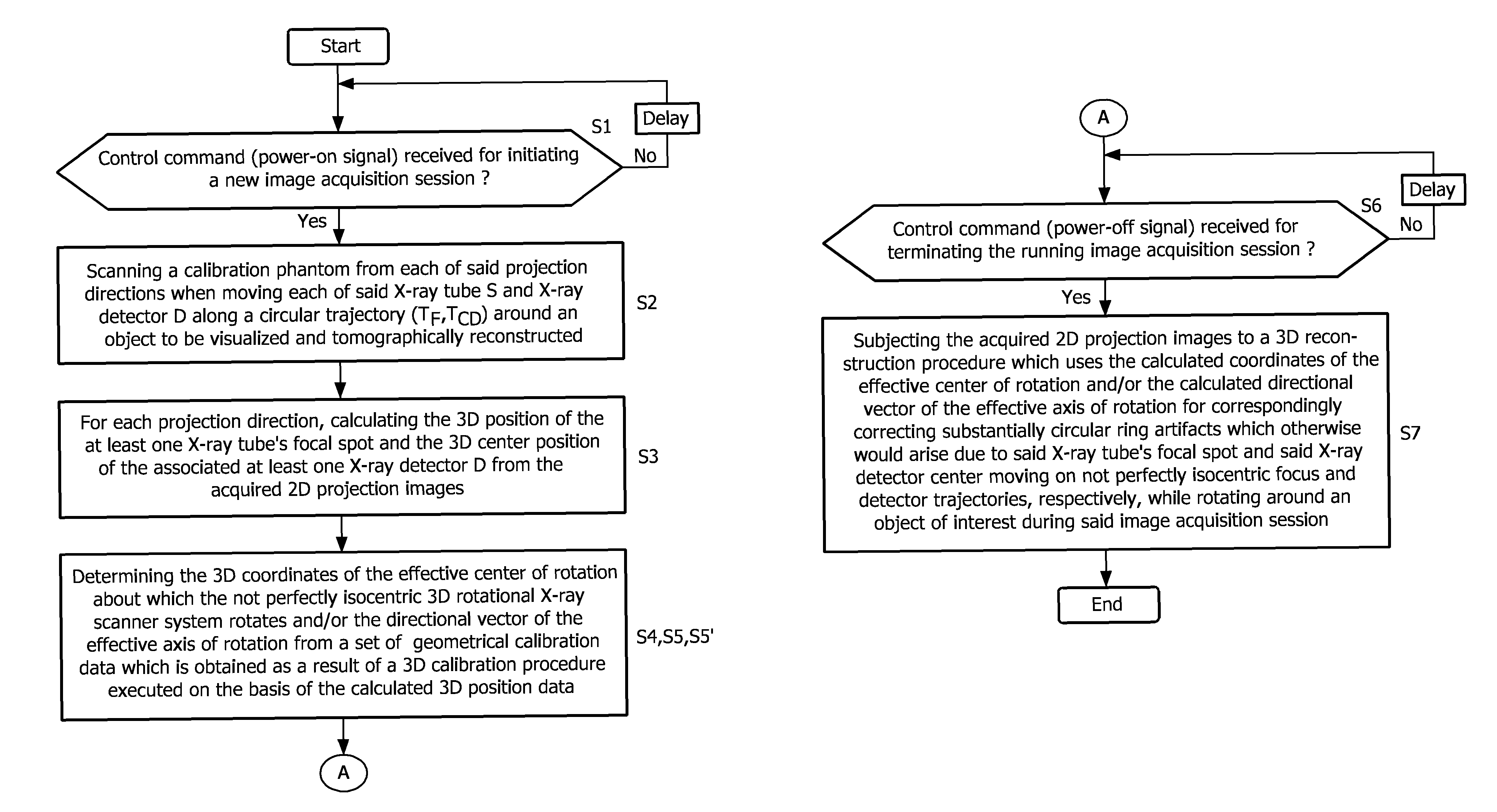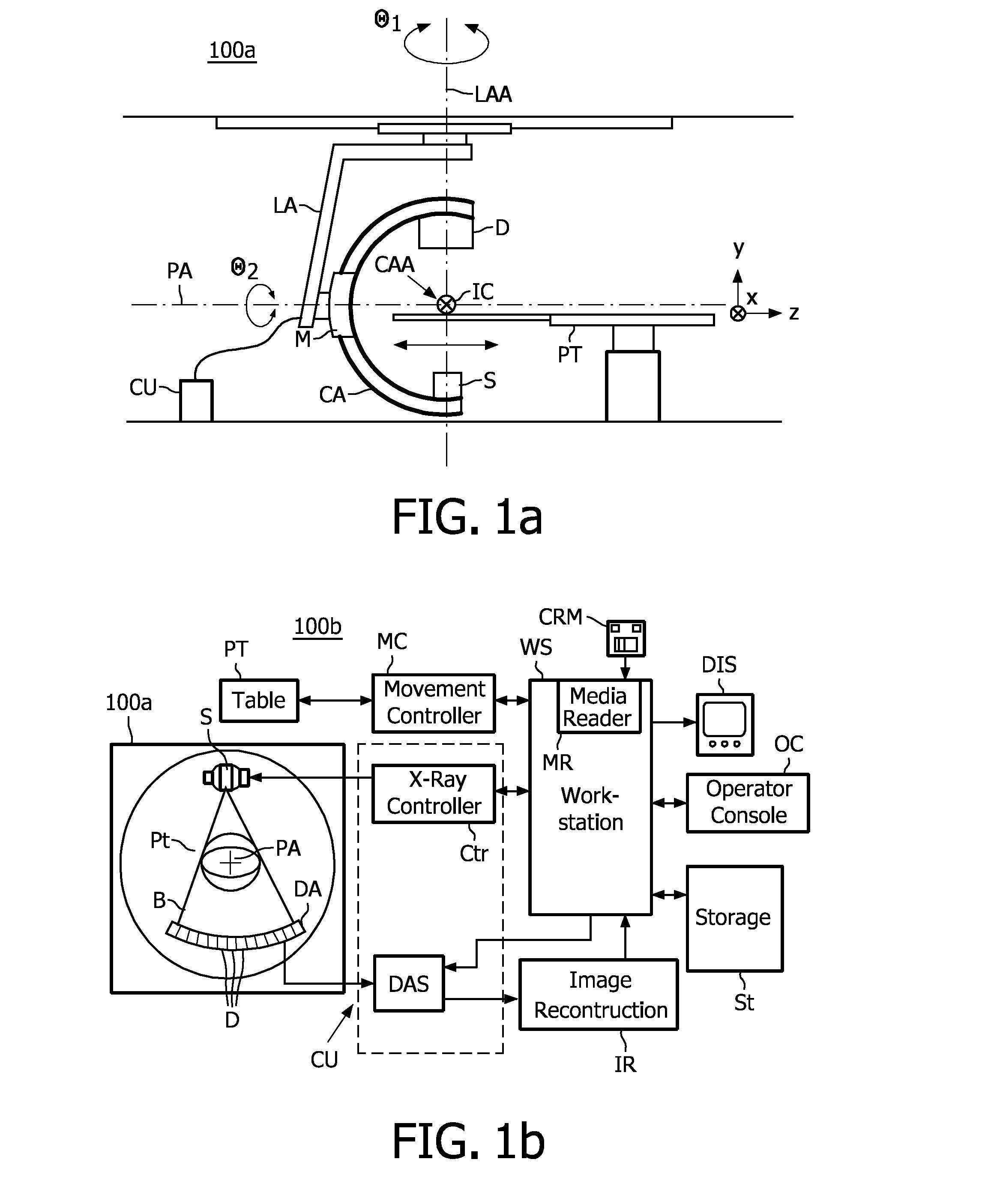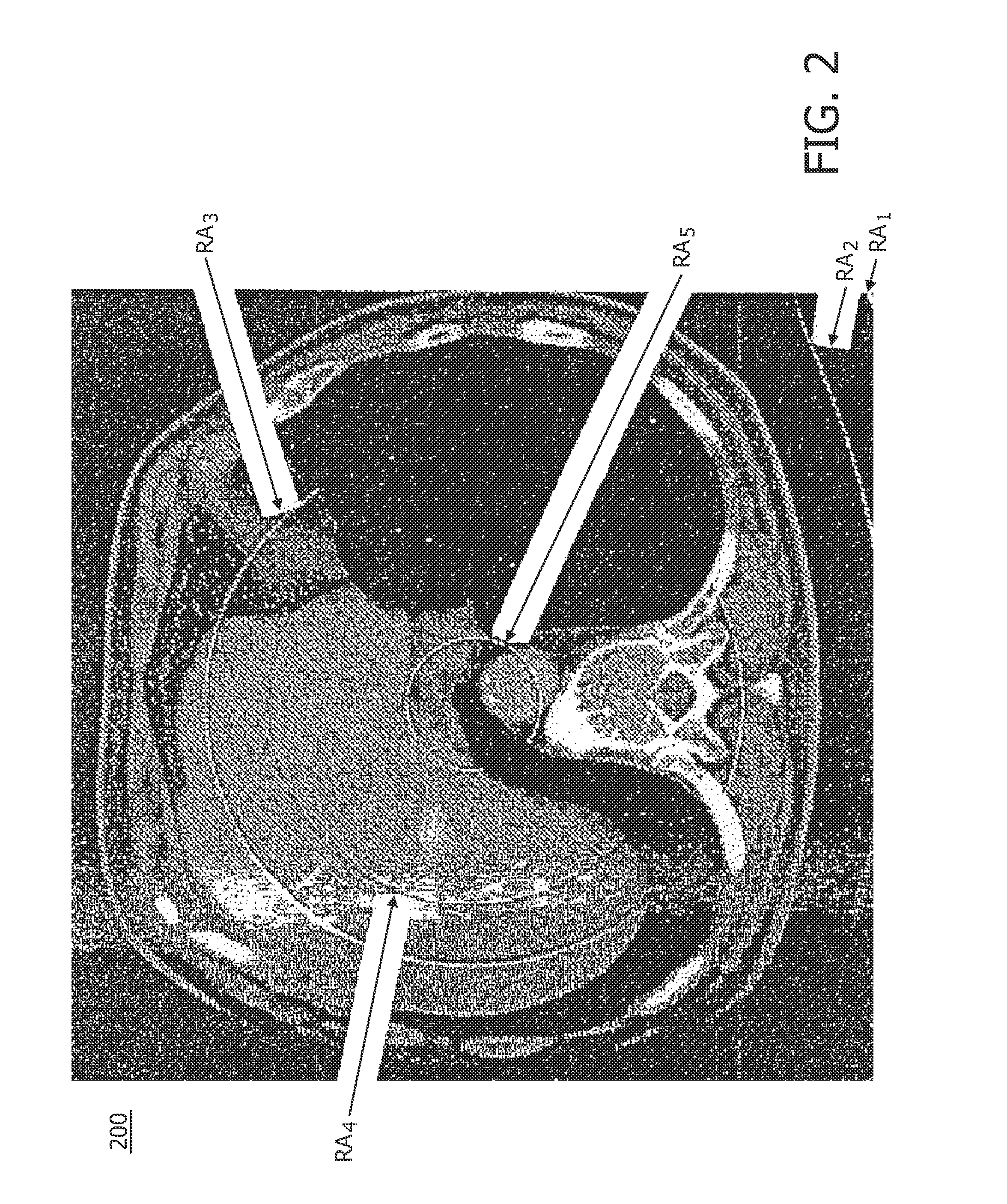Calibration method for ring artifact correction in non-ideal isocentric 3D rotational X-ray scanner systems using a calibration phantom based rotation center finding algorithm
a technology of phantom based rotation center finding and calibration method, which is applied in the field of 3d rotational xray imaging systems, can solve the problem that the ct scan cannot be performed over an angular range of 180°
- Summary
- Abstract
- Description
- Claims
- Application Information
AI Technical Summary
Benefits of technology
Problems solved by technology
Method used
Image
Examples
Embodiment Construction
[0031]In the following, the claimed calibration method and C-arm based 3D rotational X-ray imaging system according to the above-described exemplary embodiments of the present invention will be explained in more detail with respect to special refinements and referring to the accompanying drawings.
[0032]In FIG. 1a, a conventional setup configuration of a mobile C-arm based rotational X-ray scanner system 100a for use in tomographic X-ray imaging as known from the relevant prior art (e.g. such as disclosed in US 2002 / 0168053 A1) is shown. The depicted CT system comprises an X-ray source S and an X-ray detector D arranged at opposite ends of a C-arm CA which is journally mounted so as to be rotatable about a horizontal propeller axis PA and a horizontal C-arm axis CAA perpendicular to said propeller axis by means of a C-arm mount M, thus allowing said X-ray source and X-ray detector to rotate by a rotational angle (θ1 or θ2, respectively) about the y- and / or z-axis of a stationary 3D C...
PUM
 Login to View More
Login to View More Abstract
Description
Claims
Application Information
 Login to View More
Login to View More - R&D
- Intellectual Property
- Life Sciences
- Materials
- Tech Scout
- Unparalleled Data Quality
- Higher Quality Content
- 60% Fewer Hallucinations
Browse by: Latest US Patents, China's latest patents, Technical Efficacy Thesaurus, Application Domain, Technology Topic, Popular Technical Reports.
© 2025 PatSnap. All rights reserved.Legal|Privacy policy|Modern Slavery Act Transparency Statement|Sitemap|About US| Contact US: help@patsnap.com



